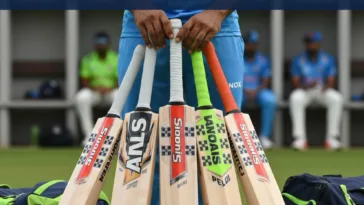Introduction:
When fans think of cricket, they imagine thrilling sixes, diving catches, and roaring stadiums. But behind those powerful performances lies an invisible struggle—mental health. In the past decade, the connection between cricket and mental health has come to the forefront, revealing how intense pressure, public scrutiny, and emotional exhaustion can affect even the greatest of cricketers.  Vinox Monsoon Collection – Built for Rainy Matches Cricket and Mental Health
Vinox Monsoon Collection – Built for Rainy Matches Cricket and Mental Health
The Growing Pressure in Modern-Day Cricket
Cricket has transformed into a year-round sport. From international tours to leagues like the IPL, players are always in motion—physically and emotionally.
Key mental health stressors in cricket include:
Tight Schedules: Little time for recovery or family life.
High Expectations: From fans, sponsors, and media.
Online Abuse: Social media criticism after a bad game.
Bubble Fatigue: Isolation during bio-bubble tours.
These factors can lead to anxiety, stress, and even burnout.
When Cricketers Spoke About Mental Health
The stigma around mental health is slowly breaking, thanks to brave players who shared their stories.
Virat Kohli admitted feeling “the loneliest ever” during his 2014 England tour.
Ben Stokes took a break in 2021 to focus on his mental well-being.
Glenn Maxwell paused his career in 2019, saying he was mentally exhausted.
Smriti Mandhana, India’s women’s team opener, spoke about pressure in women’s cricket and the need for rest.
Their honesty has opened doors for discussions about cricket and mental health across levels—from juniors to pros.
⚠️ Common Mental Health Challenges in Cricket
Mental struggles in cricket are not always visible. Here are the most common issues players face:
1. Performance Anxiety
Fear of failure can lead to sleepless nights before a match or even panic attacks.
2. Burnout
Physical tiredness mixed with emotional fatigue after constant matches.
3. Depression
Often triggered by injuries, poor form, or being dropped from the team.
4. Loneliness
Long overseas tours or bubble environments can lead to homesickness and isolation.
🛠️ Solutions: How Cricketers Cope with Mental Stress
Thankfully, teams and boards are now investing in mental wellness just like fitness training.
Sports Psychologists: Teams like India, Australia, and England now include mental health experts.
Yoga & Meditation: Techniques to calm the mind and stay focused.
Digital Detox: Reducing screen time and avoiding online negativity.
Open Conversations: Team bonding and mental health workshops are becoming more common.
At grassroots levels, academies and coaches are also beginning to understand the importance of mental resilience.
Fans and Mental Health Support
As fans, we can also play a role in supporting players’ mental well-being:
Avoid toxic trolling or negative comments.
Appreciate effort, not just performance.
Understand that athletes are human too.
A small gesture of support can go a long way in uplifting a cricketer’s mental state.





 No products in the cart.
No products in the cart.